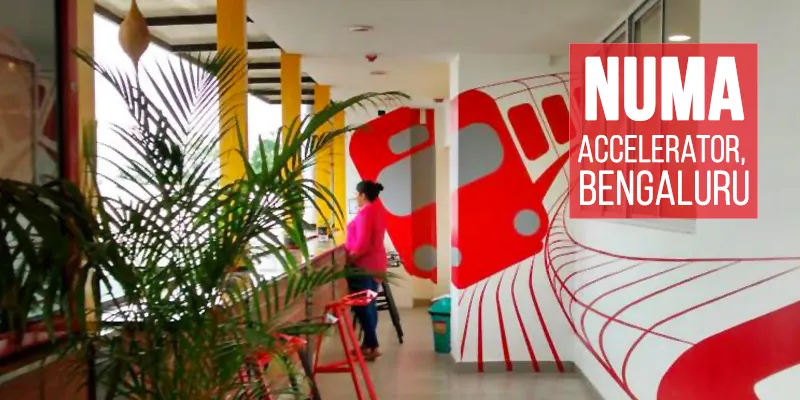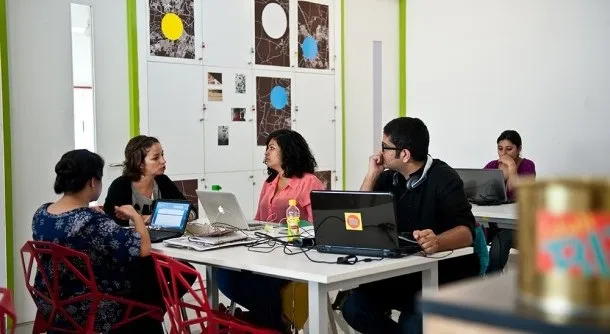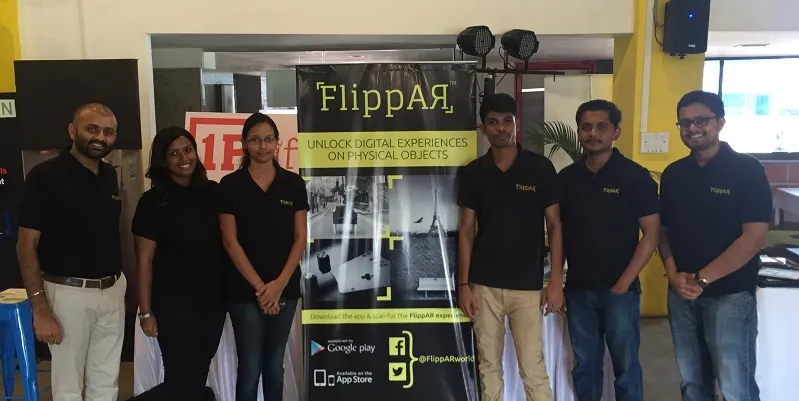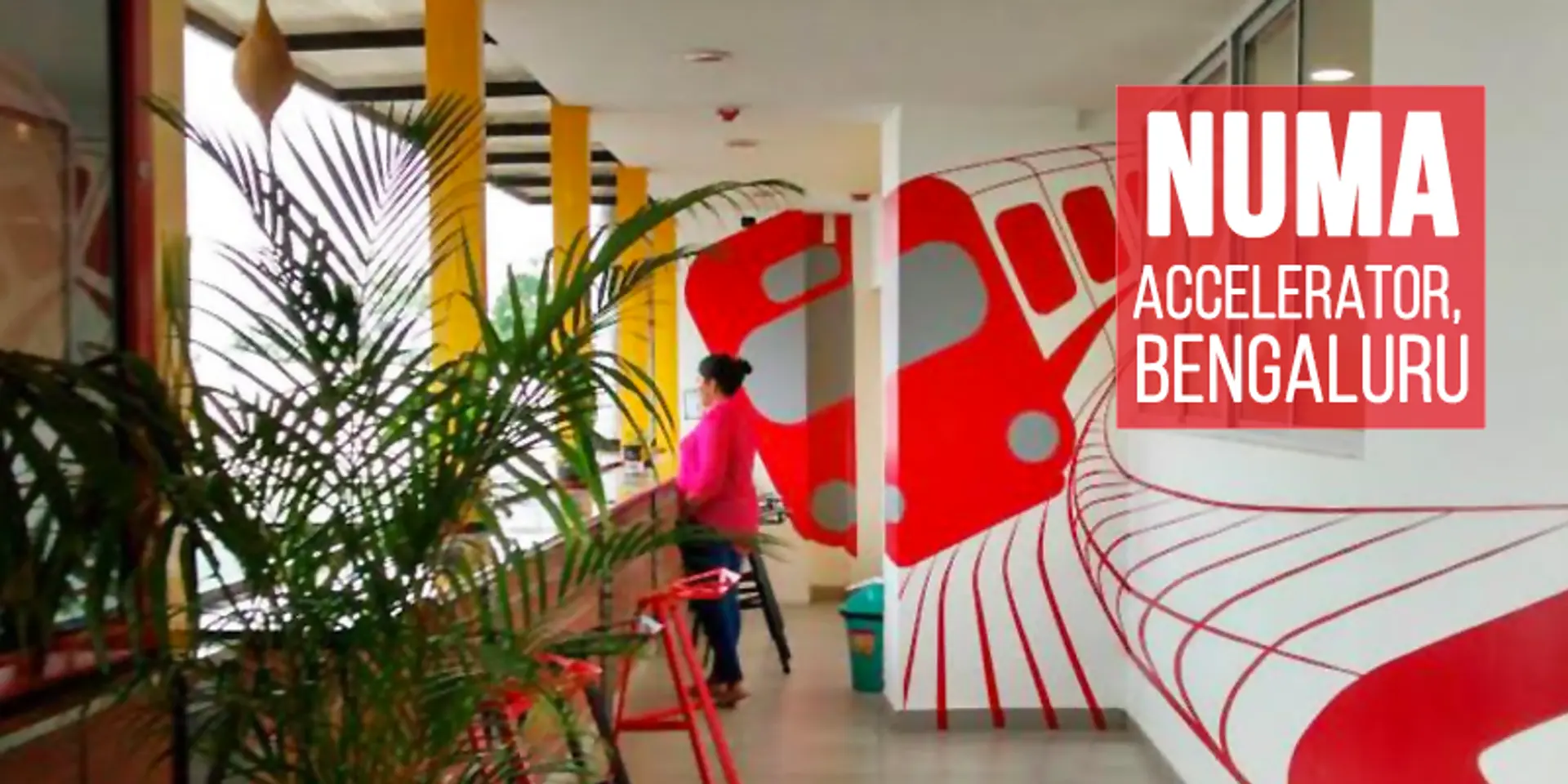Paris-based NUMA accelerator enters India, invests in 9 startups
After 15 years of existence, the NUMA accelerator opened its operations in Bengaluru last year. In the past five years, the accelerator claims to have successfully accelerated 104 startups globally, witnessing six successful IPOs.

Apart from Bengaluru, in the last one year, Paris-based NUMA has opened accelerators in Moscow, Casablanca, Barcelona, and Mexico City.
Frederic Oru, International Director of NUMA Paris, plans to set up 15 worldwide centres by 2019, adding close to one location every quarter. He says
Our main vision is to build a global network for innovation with no ecosystem as the centre. The key is to bring diversity to unlock real innovation. We already had an impact on the developed markets and thought of looking at other developing ecosystems. The criterion was to enter thriving startup ecosystems, where startups have an existing entrepreneurial mindset, but lack support. Our mission moving forward will be to get synergies out of these various ecosystems.
Thus, Bengaluru was an obvious choice. However, NUMA looks forward to tap other South Asian ecosystems by entering the Singapore and Indonesian markets.
The Indian chapter
Starting up with the same vision, Souad Tenfiche, Director of the Accelerator Programme in Bengaluru, says that they look at the team and people before incubating a startup. For her, it is essential to have the right people with a holistic team having complementary skills. This means that the team should have a business person, a technology guy, growth, and other supporting functions of the business. Souad says,
The success of a startup is not their business model, but rather their people. Business models change, startups pivot; however, if they don’t have a complete team in place, it would be difficult for a startup to reach the desired success.
Souad also adds that the need for startups to be solving real pain points and scalability as other essential parameters to be incubated.
NUMA gives each accelerated startup €3,500 as bootstrapping cash. It takes a 4.5 percent equity stake in the company on incubation.

The startups will be offered one-on-one mentor sessions by NUMA’s global network of 1,000 experts and 350 mentors and entrepreneur-in-residence. Topics for these sessions include marketing, growth, design amongst others. The selected startups are also offered 10 hours each of Chartered Accountant lessons and legal guidance, such as registration of the company and IP protection .
The six-month programme also lets businesses set their own performance targets, with active checks periodically. This happens right at the start of the incubation.
From fashion, groceries to technology, here is the list of startups for the first batch NUMA Bengaluru’s accelerator programme.
- Piki
Founded by Indrayudh Ghoshal in October 2015, Piki focuses on making people take surveys for businesses, within four hours of posting. The idea is to target the rapid response time. The firm is targeting US universities as its prime audience to take these surveys. Having already piloted in IIM-Bangalore, the firm provides monetary rewards to the surveyors. Indrayudh says that there is also a white label of the application underway, which helps employees take quick surveys within an organisation.
- Canvazify
Being a productivity management tool for strategy, the product helps organisations make better decisions by spreading the information in a canvas format. The platform also integrates with other work tools like Dropbox, Google Drive, Trello and Slack. A plug and play solution, the platform already has 32 paid customers including strategy innovation companies like daVIZta, Gujarat government and Harvard Medical School.
- Najdik
Najdik is a groceries and essentials marketplace serving needs specific to the South Indian community in Gurgaon. Serving close to 4,000 customers, the platform gets 80 percent repeat orders.
Customers can also place orders through WhatsApp or by calling Najdik’s helpline. They provide support in five different languages. They offer same-day delivery if the order is placed before 1 pm. According to Co-founder A. Prahalad, the firm aims to make 30 crores in revenue in the next two years. It currently receives 30 orders per day on an average with a ticket size of Rs 700 per order.
- Men’s Room
Men’s Room is a fashion, shopping, and content discovery platform, exclusively for the urban men. The app curates looks and helps customers buy the items presented. Holding no inventory, Men’s Room sells items from partner brands such as Amazon and Flipkart, charging 10–20 percent commission from these partners for every purchase. Men’s Room is also looking to expand their content to provide a holistic approach to it. Apart from fashion, they also plan to provide content around pop culture, gadgets, and others.
- FlippAR
FlippAR is an object tagging app that works on augmented reality. Customers can just point an object to their smartphone camera and tag them with a message, describing their experiences. Further, they can share the same message with their Facebook friends on the app. According to the founders, Vivek Jain and Jigar Shah, the platform helps in brand engagement, while creating gamification experiences introducing offers and more.
Following a subscription-based model, the firm charges anywhere between Rs 3 and 5 lakh to brands, asking Rs 5‑15 per scan. FlippAR has already tied up with brands like Maxx Fashions, Himalaya, Café Coffee Day, Thompson Reuters amongst others.

- Fullonwedding
Fullonwedding is an end-to-end wedding planning platform for Indian marriages. Divided into three parts – inspiration, planning tools, and vendor discovery – the platform has 3,200 handpicked vendors. These range across 18 categories of venue, jewelry, honeymoon travel, astrologists, pandit bookings amongst others.
Shalabh Jhalawad, Co-founder of Fullonwedding, says that the website gets 45,000 users monthly, with more than 100 transactions made in the last eight months. The average ticket size of these transactions range anywhere from Rs 3 lakh to 5 lakh.
- Svadhin
Trying to build independent living solutions for senior citizens, Svadhin helps the elderly make key changes to their physical environment. The process starts with the assessment of their present physical conditions, followed by suggesting a solution and deployment of the solution. The firm also has different products including supportive aid, rails and ramps for the elderly.
Launched in October 2015, Svadhin has already deployed solutions for 42 cases in Bengaluru. In the next 18 months, the firm plans to expand its presence in two cities. Svadhin handles cases around diabetic amputation, paraplegia, stroke, and general active ageing. With most of their audiences being elderly citizens, the firm charges a nominal fee of Rs 1,000 for assessment. The average ticket size of deploying solutions range anywhere between Rs 20,000 to 25,000.

- 1Plify
1Plify is a global admission portal that allows students to directly connect with institutions of their choice around the world. Partnered with institutions in the UK, France, Cyprus, India, Dubai, Vietnam and Philippines, students can now avail courses from these countries.
- Courtside
Similar to Playo, the platform allows users to book playgrounds through their mobile app while connecting with newer players in Bengaluru.
According to Souad, NUMA Bengaluru plans to bring its second batch of startups on board by August 2016. Emphasising on being truly global, the second batch might be sent on a startup exchange programme for two weeks to other geographies. Although sector agnostic, Souad tells that the second batch of accelerator programme will be strongly focussed on tech-enabled startups.







